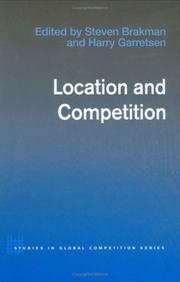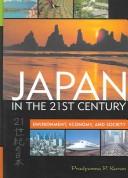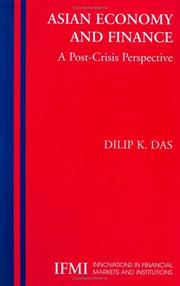| Listing 1 - 3 of 3 |
Sort by
|

ISBN: 0415365473 0415655471 9786610244621 1134215436 1280244623 0203016920 9780203016923 9780415365475 6610244626 9781134215430 9781134215386 113421538X 9781134215423 1134215428 9780415655477 9781280244629 Year: 2005 Publisher: London ; New York : Routledge,
Abstract | Keywords | Export | Availability | Bookmark
 Loading...
Loading...Choose an application
- Reference Manager
- EndNote
- RefWorks (Direct export to RefWorks)
The 'new economic geography' is one of the most significant developments to have occurred in economics in recent years. The new insights gained from this approach have been successfully applied to issues such as globalization, international integration and policy competition. Contributed to and edited by leading international academics, this topical book analyzes the research inspired by this 'new economic geography' and examines the ensuing policy implications. Issues that are connected to this approach such as core-periphery patterns, transportation costs and economic modelling are also e
Microeconomics --- Trade theory --- Economic geography --- 330.104 --- 339.1 --- 911.4 --- AA / International- internationaal --- 37 --- 338.43 --- Micro-economie --- Handelstheorie --- Economische geografie --- Geografische economie. Monografieën van streken en landen. --- Regionaal beleid. Industriële ontwikkeling en omschakeling van bepaalde regio's. Nieuwe industrieën. --- Economic geography. --- Competition. --- Industrial concentration. --- Economic policy. --- Economic nationalism --- Economic planning --- National planning --- State planning --- Combinations, Industrial --- Concentration, Industrial --- Economic concentration --- Competition --- Competition (Economics) --- Competitiveness (Economics) --- Economic competition --- Geography, Economic --- World economics --- Economic aspects --- Economic policy --- Industrial concentration --- Big business --- Duopolies --- Oligopolies --- Trusts, Industrial --- Consolidation and merger of corporations --- Industrial organization --- Economics --- Planning --- National security --- Social policy --- Geography --- Commercial geography --- Commerce --- Conglomerate corporations --- Covenants not to compete --- Monopolies --- Open price system --- Supply and demand --- Regionaal beleid. Industriële ontwikkeling en omschakeling van bepaalde regio's. Nieuwe industrieën --- Geografische economie. Monografieën van streken en landen

ISBN: 9780813191188 0813191181 0813123429 9780813123424 Year: 2005 Publisher: Lexington University press of Kentucky
Abstract | Keywords | Export | Availability | Bookmark
 Loading...
Loading...Choose an application
- Reference Manager
- EndNote
- RefWorks (Direct export to RefWorks)
Twenty-first century --- Japan --- #SBIB:328H53 --- JP / Japan - Japon --- 37 --- J4000.90 --- J3400 --- Instellingen en beleid: Japan --- Geografische economie. Monografieën van streken en landen. --- Japan: Social history, history of civilization -- postwar Shōwa (1945- ), Heisei period (1989- ), contemporary --- Japan: Geography and local history -- Honshū and Japan in general --- Twenty-first century. --- Social conditions --- Economic conditions --- Politics and government --- Geografische economie. Monografieën van streken en landen --- Japan. --- Nihon --- Nippon --- Iapōnia --- Zhāpān --- I︠A︡ponii︠a︡ --- Yapan --- Japon --- Japão --- Japam --- Mư̄ang Yīpun --- Prathēt Yīpun --- Yīpun --- Jih-pen --- Riben --- Government of Japan --- 日本 --- 日本国 --- Nipponkoku --- Nippon-koku --- Nihonkoku --- Nihon-koku --- State of Japan --- Япония --- Japani --- اليابان --- al-Yābān --- يابان --- Yābān --- Japonsko --- Giappone --- Japonia --- Japonya --- Twenty-first century - Forecasts --- Jepun --- Yapon --- Yapon Ulus --- I︠A︡pon --- Япон --- I︠A︡pon Uls --- Япон Улс --- Politique de l'environnement --- 1990-.... --- Politique économique --- 1989-.... --- Conditions économiques --- Conditions sociales

ISBN: 1280311975 9786610311972 0387233830 0387233814 144193619X Year: 2005 Publisher: New York, NY : Springer US : Imprint: Springer,
Abstract | Keywords | Export | Availability | Bookmark
 Loading...
Loading...Choose an application
- Reference Manager
- EndNote
- RefWorks (Direct export to RefWorks)
Topicality of Asian economy has refused to fade for almost four decades; if anything it has been levitating. The Asian economy has changed markedly since the economic and financial crisis of 1997-1998 and is continuing to evolve. As a scholarly subject matter, Asian economy has not stopped attracting academicians, policy mandarins, decision makers in the arena of business and students of Asian economy. The Asian crisis was a cataclysmic event for the region and brought to the surface several systemic limitations, like those in the financial sector, corporate governance, regulatory oversight, legal framework, and exchange rate management. Managers of Asian economy need to get to the bottom of these acutely problematical systemic issues. Additionally, Asian economies need to change with the demands of time and devise their post-crisis development strategy. Asia’s growth model, that served it so well for four decades, is overdue for renewal so that it can re-strengthen its bonds with the ever-evolving regional and global economic reality. The old growth model is likely to be less relevant and effective in the post-crisis future of the Asian economies. It is sure to run into the wall of diminishing returns. An outstanding feature of Asian Economy and Finance: A Post-Crisis Perspective is that unlike most Asia-related books, it is written in a comprehensive and authoritative manner and covers large areas of Asian macro-economy and finance. The noteworthy areas of focus include global and intra-regional trade and investment, as well as financial and monetary aspects. In-depth discussions have been provided on regional integration through expanding trade, financial flows, regional production networks, financial and monetary co-operation. In taking a contemporary or post-crisis view of the Asian economy, this book offers the newest knowledge related to relevant themes on the Asian economies as well as the latest concepts. In a succinct manner, this book deals with the principal normative and positive strands with which one need to be properly familiar in this subject area. This tightly written volume covers a great deal of ground and imparts knowledge on the Asian economy related themes to students, researchers and policy makers alike. Asian Economy and Finance: A Post-Crisis Perspective is neither overly technical nor model-oriented. It is easy to access for the target readership because of its descriptive analysis style, which stops short of mathematical formulations and econometric modeling. Many students and other readers who have good analytical minds and sound knowledge of economic principles feel lost in mathematical formulations. This writing style makes it accessible to a much larger number of readers.
Regionalism --- Asian cooperation. --- Financial crises --- Asia --- Economic integration. --- Economic conditions --- International cooperation --- International economics. --- Macroeconomics. --- Public finance. --- International Economics. --- Macroeconomics/Monetary Economics//Financial Economics. --- Public Economics. --- Cameralistics --- Public finance --- Currency question --- Economics --- Economic policy, Foreign --- Economic relations, Foreign --- Economics, International --- Foreign economic policy --- Foreign economic relations --- Interdependence of nations --- International economic policy --- International economics --- New international economic order --- Economic policy --- International relations --- Economic sanctions --- Asian cooperation --- 330.95 --- 331.30 --- 333.481 --- 37 --- ASI / Asia - Azië - Asie --- Economische toestand --- Monetaire crisissen, hervormingen, saneringen en stabilisering --- Geografische economie. Monografieën van streken en landen --- Public finances
| Listing 1 - 3 of 3 |
Sort by
|

 Search
Search Feedback
Feedback About
About Help
Help News
News